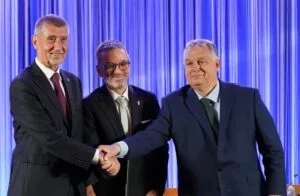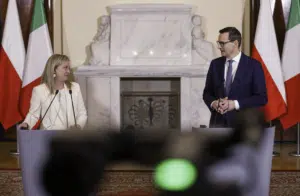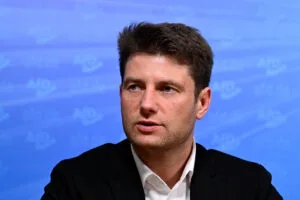Brussels – If it were united, it could almost aspire to become the leading group in the European Parliament. But the European right—the conservative, sovereignist, patriotic and extreme right—is divided into three, quarrelsome perhaps more than ever, and with contours that are almost always indefinable, whereby a national party can switch from one group to another (or be excluded) for reasons that are not very political and all strategic. This week, the last before the July 16–19 inaugural session in Strasbourg, the long-awaited earthquake in the right-wing camp went on in the EU Parliament, delivering an even less easy-to-analyze picture. European Conservatives and Reformists (ECR), Patriots for Europe (PfE) and Europe of Sovereign Nations (ESN) are the three acronyms that will characterize the tenth legislature, with some points of contact but also a vision of European integration that is slowly beginning to differ.

All eyes are on the Patriots for Europe group, which was formed on Monday (July 8) and has already become the third largest group (84), behind only the Populars (188) and Social Democrats (136). Within it are the Hungarians of Fidesz, the Italians of Lega, the French of Rassemblement National, the Spaniards of Vox, and ten other nationalist and extreme right-wing parties. In the absence of a political manifesto, not only the positions of the
members of the disbanded Identity and Democracy (ID) group. are valid, but also the statements of the group’s first vice-president, the Hungarian Kinga Gál (Fidesz), at the end of the constituent meeting: “We want to provide a European alternative, not an alternative to Europe,” hinging its proposal on “defence of Judeo-Christian roots,” “combating illegal immigration,” and opposition to the Green Deal. The basic idea is an increase in the exclusive powers of nation-states, but not a total repudiation of what has been done in more than 70 years of European integration history. As already vindicated by the Hungarian premier, Viktor Orbán, Rassemblement National MEP Jean-Paul Garraud made it clear to the press that “we want a return to what was there before Maastricht,” i.e., a European Economic Community (EEC) with very limited powers, before the Founding Treaty Maastricht 1992 included a whole series of new ones (foreign and security policy, justice, home affairs, common market).

The second-largest group in the right-wing camp in the EU Parliament is the European Conservatives and Reformists, which has been structured for the longest time but has had the lowest step on the podium of parliamentary groups snatched away by the Patriots. The cornerstone of the formation that now has 78 members is the Italian-Polish axis of Fratelli d’Italia and Law and Justice, which together bring 44 MPs. According to the Manifesto for the June European elections, ECR opposes a “European super-state” and an “automatic deepening of EU political integration,” focusing on the “preservation of national identities” and the classic idea of the nation-state. However, not only has any reference to leaving the Union disappeared, but now European conservatives are calling for “a reform of the European Union” whereby “the EU must do less but better”. Similarly, while criticizing the “overly ideological green climate policy,” they do not shy away from linking to Brussels for (very relaxed) actions on climate and migration. The closure is on reception, not the fact that the EU “must help member states manage migration flows.”

And then there is Europe of Sovereign Nations, the latest European right-wing group to be formed Wednesday (July 10) in the EU Parliament and the smallest of all in the 10th legislature (25 members). The distinctly extreme right-wing and ultranationalist formation hinges on the Germans of Alternative für Deutschland—which with its 14 MEPs accounts for well over half of the group—and barely reaches the minimum number of members (23) and EU countries represented (7), along with the French of Reconquête, half of the Poles of Konfederacja, the Bulgarians of Rinascita, and four other one-member parties. In essence, it is a group of radically nationalist, pro-Russian and eurosceptic forces, born mainly out of the will of AfD Germans not to be marginalized in the non-attached after the expulsion from the ID group because of the statements about the Nazi special forces SS past of its leading candidate, Maximilian Krah (now also out of Europe of Sovereign Nations). Of the new group, everything is missing on the communicative level, not only the manifesto, but intentions have already been made clear: “We are against the Green Deal, against migration, against the Islamization of Europe, and we want the powers of Brussels to return to the national level.” The end of the European Union, without internal reforms, without distinctions, without compromise.
English version by the Translation Service of Withub









